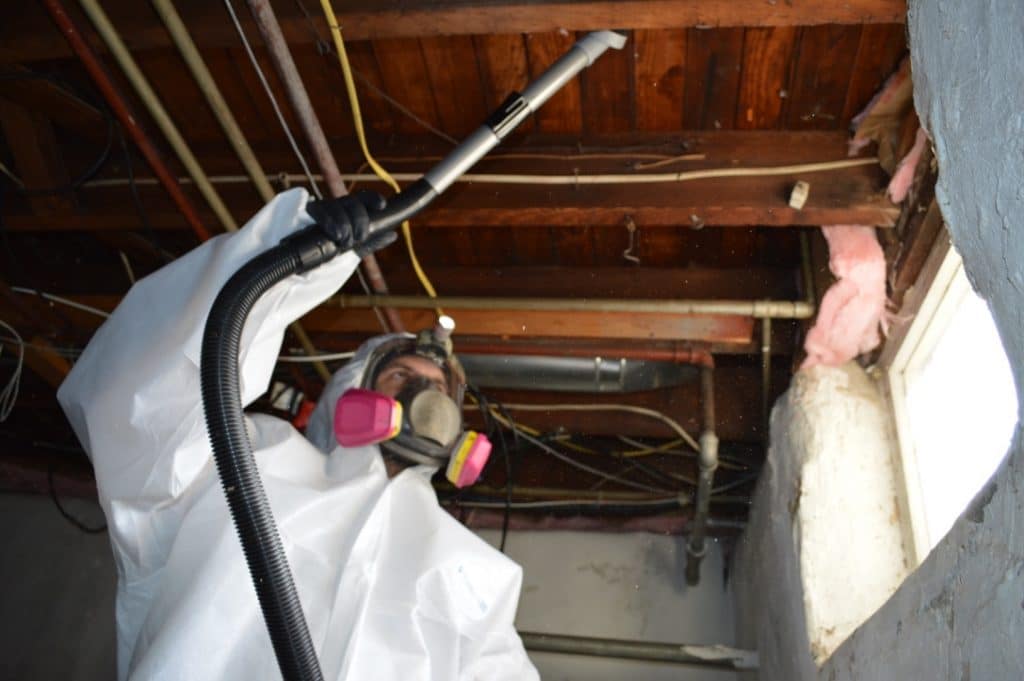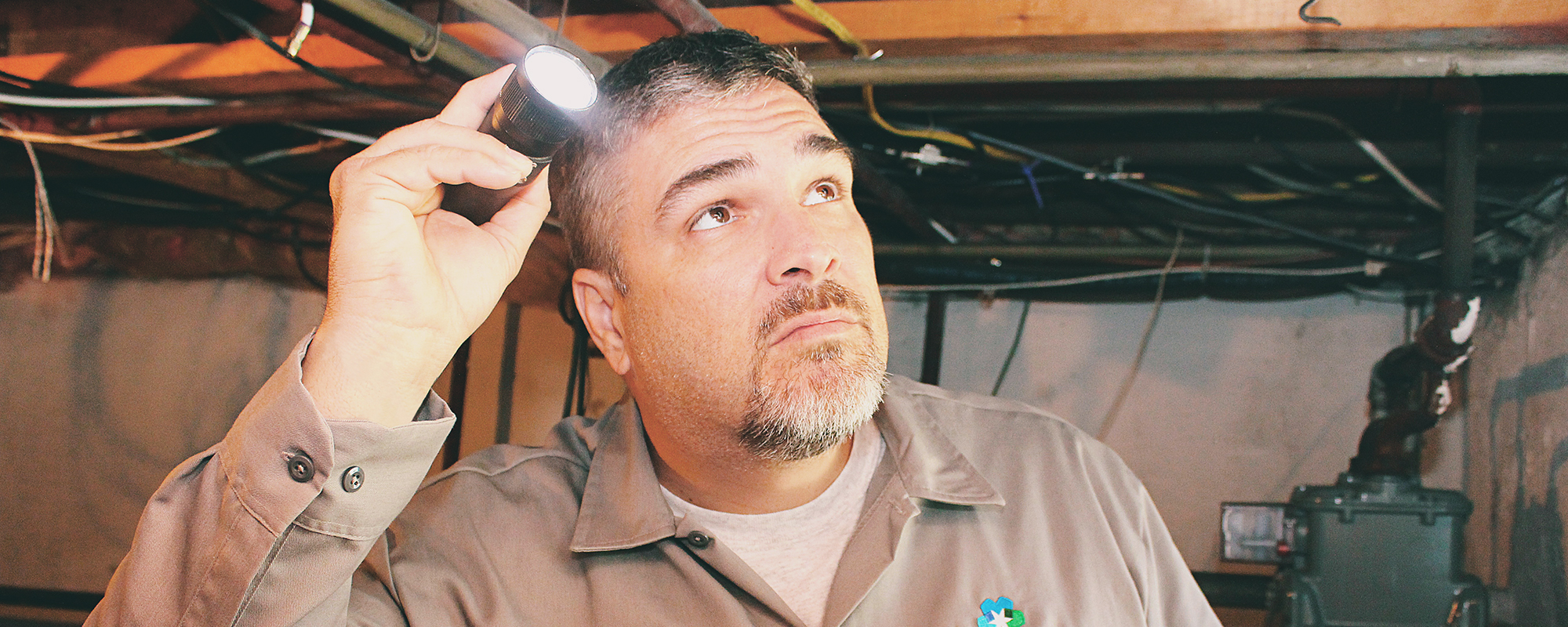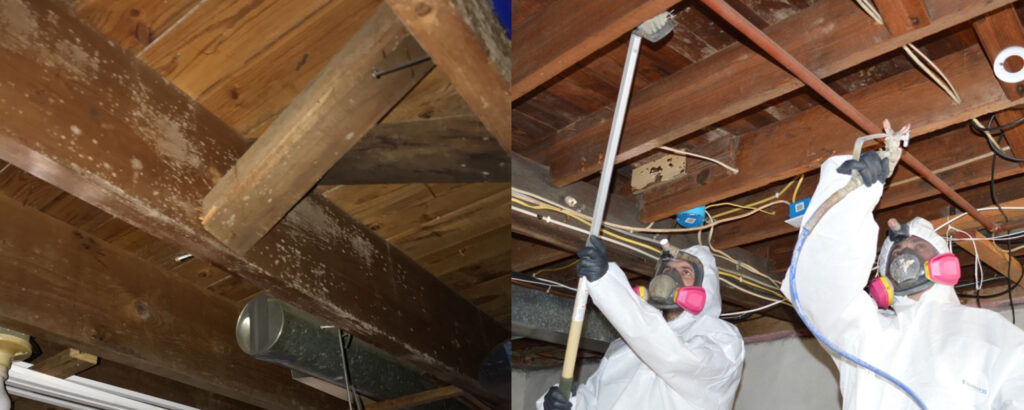In the Tidewater Region of Virginia, the battle against basement mold is a frequent and challenging one. The humid climate and the proximity to water bodies create a conducive environment for mold growth, particularly in the often overlooked crawl spaces. These dark, damp areas can become hotbeds for mold spores, leading to a full-blown mold infestation if not addressed promptly. Basement mold prevention is the best way to avoid an infestation.
Protecting your crawl space foundation from the damaging effects of mold is crucial to maintain the structural integrity of your home. Regular crawl space repair and diligent maintenance can help keep mold at bay.

However, in cases of severe infestations, professional mold removal services or mold remediation services may be needed to fully eradicate the problem and prevent its recurrence. Understanding these factors is key to safeguarding your home from the harmful consequences of mold.
Understanding Mold And Basement Mold Prevention
Mold is a type of fungus that thrives in the form of multicellular filaments known as hyphae. While they play a crucial role in nature by breaking down dead organic matter, they can pose significant problems when growing indoors on residential or commercial property.
The life cycle of mold begins with microscopic spores that float around in the air. Invisible to our eyes, these spores are ubiquitous, present both indoors and outdoors. When these spores land on damp surfaces, they begin to grow and digest the material they are growing on, leading to potential mold problems.
There are numerous mold species, each with its own set of growth conditions. However, a common requirement among all mold species is moisture. Without it, mold cannot grow.
Conditions that Encourage Mold Growth
The primary condition that encourages mold growth is excessive moisture. This could be due to high humidity, condensation, or water leaks. The presence of organic materials such as wood, paper, carpet, or insulation, which mold uses as a food source, also promotes mold growth.
Warmth is another factor that can encourage mold growth. Most mold species thrive in warm conditions, making heated indoor environments ideal for their growth.
Why Basements are Prone to Mold
Basements, especially those with crawl spaces, are notorious for their susceptibility to mold problems. They tend to be cooler and damper than other parts of the house, leading to the build-up of excessive moisture – an ideal breeding ground for mold.
Crawl spaces are typically dark, moist, and poorly ventilated. These conditions make them highly susceptible to crawl space mold. Without regular crawl space inspections, a minor mold problem can quickly escalate into a serious mold infestation.
Basements and crawl spaces often contain materials such as wooden beams and cardboard boxes, providing ample food for mold. Coupled with poor ventilation, which traps humid air, these factors create a conducive environment for mold growth.
Basement Mold Prevention Tips For Virginia Homeowners
Leaks
Checking for leaks regularly will help you catch a leak before it has the chance to do too much damage.
- Routinely check for water leaks in your basement ceiling from the levels above.
- If you detect any signs of water damage, you should address it immediately. You may need to contact a professional to get to the bottom of the leak and stop it before it leads to mold development.
- Check all HVAC components and plumbing systems running through the basement for leaks or condensation.
- Water leaks need to be properly resolved before you develop a mold problem– it only takes 24-48 hours for mold to develop in the presence of moisture.
Foundation
Water can potentially enter your basement through your foundation walls.
- Regularly assess your foundation walls from the outside, and your basement or crawl space walls from the inside to identify and address any signs of damage.
- Look for any cracks, masonry damage, or interior signs in our main living space– these can all be warning signs of foundation damage in VA.
- Manage drainage around your foundation. It is important that all rain runoff is draining away from your VA home so that it does not collect and pool around your foundation.
Landscape
Your home’s surroundings are very important to keeping rising water out. You always want water to flow away from your home.
- Make sure that you plant your trees with sufficient space between the tree and your home. Tree roots are aggressive and their growth can apply unwanted pressure to your foundation walls. Depending on the kind of tree, you should plant your trees roughly 15-20ft away from the home to avoid damage to your foundation.
- Track the water pattern during heavy rain. Keep an eye on your yard during heavy rain to see if/where the water approaches and pools near your home. If you notice consistent pooling, contact a landscaper or excavation contractor for advice on how to direct the water away from your home.
- Your lawn should slope away from your home. If you notice that your lawn is graded in the wrong direction, towards your home, your home may be vulnerable to flooding. You should consult a landscaper for an appropriate solution.
- When you place mulch, be sure that you leave a 6-inch gaps between your mulch and the siding of your home. The moisture in the mulch can wick into the siding and rot away the building materials.
Drainage
In order for drains to do their job, they must be clear at all times.
- If you have basement floor drains, check them regularly to look for any obstructions in or around the drain (dirt, debris, storage items, etc.). Optimized drainage will help to avoid flooding.
- If you have steps leading to your basement, make sure the drain at the base of the steps is free and clear of debris. Stair drains in older homes tend to be on the smaller size and are prone to clogging.
Gutters
Regular gutter checks and maintenance
- Make sure that gutters and downspouts direct water AWAY from foundation walls. Water that flows towards the home can seep into the basement and cause water damage and mold development. Downspouts should extend at least six feet away from your home.
- Clean your gutters regularly– your gutters should be free of all debris to avoid backups. Overflowing gutters can lead to water buildup around the foundation walls.
- To help prevent leaves from getting into your gutter, you can install gutter guards. But even with gutter guards, it is still good to make a habit of checking your gutters to make sure nothing gets lodged in the crevices.
- Make sure that the downspouts are not connected to your foundation footer drain tiles or to underground dry wells.
Waterproofing
Basement waterproofing is a tactic to prevent water from penetrating the basement.
- If your basement is below ground level, it may require basement waterproofing to help combat seepage or moisture buildup from groundwater.
- Basement waterproofing can mean the application of sealant materials, the installation of drains and sump pumps, and more.
- If you are considering basement waterproofing, you should consult a trained professional will be able to properly handle the job.
Dehumidifier
Basement dehumidifiers can help to keep your VA basement dry. If your basement is especially damp or humid, a dehumidifier can help.
- Make sure that you pick a dehumidifier that is the right size and capacity for the needs of that specific space to ensure effectiveness.
- Regular dehumidifier maintenance will help to preserve the quality and effectiveness of your unit.
Health Risks Associated with Basement Mold
The Health Risks of Mold Exposure
Mold infestations, particularly in basements and crawl spaces, can pose significant health risks to residents. When mold grows, it releases microscopic spores into the air. When inhaled, these spores can cause a variety of health problems.
The most common health issues associated with mold exposure are allergic reactions, which can range from mild to severe. Symptoms may include sneezing, runny or blocked nose, red or watery eyes, wheezing, and skin rashes. These symptoms can be particularly severe in individuals with existing allergies or asthma.
Beyond allergic reactions, exposure to certain types of mold can lead to more serious health conditions. For instance, exposure to black mold (Stachybotrys chartarum) can cause chronic respiratory illnesses and other serious health issues like memory loss, insomnia, anxiety, and depression.
In some cases, prolonged exposure to mold can also lead to a condition known as mycotoxicosis, or mold poisoning. This can result in a host of symptoms, including fatigue, nausea, headaches, and in severe cases, neurological issues and immune suppression.
Significance of Mold-Related Health Risks for Homeowners in the Tidewater Region
For homeowners in the Tidewater Region of Virginia, the health risks associated with basement mold are particularly significant. The region’s humid climate and proximity to water bodies create conditions that are highly conducive to mold growth, increasing the potential for mold infestations in residential properties.
Regular mold inspections carried out by professional mold technicians are crucial in this region to ensure early detection and remediation of any mold problems. This includes a thorough crawl space inspection, as these areas are often overlooked and can harbor serious mold infestations.
In addition to causing health problems, untreated mold can also cause structural damage to properties, leading to costly repairs. Therefore, homeowners in the Tidewater Region need to be proactive in dealing with potential mold issues to protect not only their health but also their homes.

Basement Mold Prevention In Your Basement With Help From MasterTech
Basement mold prevention and crawl space maintenance is an essential responsibility for homeowners, especially those residing in the Tidewater Region. The humid climate and geographical conditions of the region markedly increase the risk of mold infestation. Regular inspection, maintenance, and proactive waterproofing strategies are key in mitigating these risks.
Not only does this help ensure the health and well-being of the residents, but it also safeguards the structural integrity of the homes. It is strongly recommended that homeowners seek professional assistance for these tasks to ensure that they are done effectively and comprehensively.

